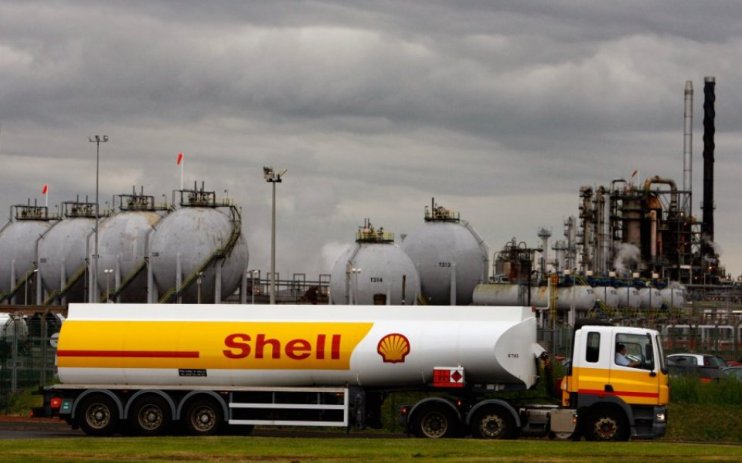Royal Dutch Shell profits slide 15 per cent amid low oil prices

Royal Dutch Shell became the third oil supermajor to feel the strain of low oil prices this week as profits fell 15 per cent in the third quarter.
However, Shell still managed to comfortably beat analysts’ expectations, posting earnings of $4.8bn (£3.7bn), well ahead of the $3.91bn anticipated.
Read more: Total latest to suffer from low oil prices in third quarter results
The oil giant have a boost in oil and liquefied natural gas to thank for offsetting the impact of oil prices, which have fallen 17 per cent year on year.
Shares in Shell fell over four per cent to 2221p.
Oil and gas production in the three month period fell by one per cent from the same period last year to 3.6m barrels of oil equivalent per day.
In a statement, chief executive Ben van Beurden said: “This quarter we continued to deliver strong cash flow and earnings, despite sustained lower oil and gas prices, and chemicals margins.
“Our earnings reflect the resilience of our market-facing businesses and their ability to capitalise on market conditions, including very strong trading and optimisation results this quarter.”
However, he went on to say that prevailing macroeconomic conditions would cause uncertainty over the pace of Shell’s proposed buyback of $25bn worth of shares a year.
The Anglo-Dutch company, the world’s biggest dividend payer at $16bn a year, had planned to boost payouts to investors through dividends and share buybacks to $125bn between 2021 and 2025.
Morgan Stanley analyst Martijn Rats said: “The lack of a dividend hike at BP and Shell management hinting at a possibly slower pace of share buybacks are suggesting companies are taking a more sober view on the outlook for oil and gas prices.”
Chief financial officer Jessica Uhl said that although conditions had been tough, reshaping Shell’s business had improved the company’s resilience.
She pointed out that the company’s best performances in the third quarter had come from its so-called transition businesses, which the company is increasingly building its strategy around:
“The returns from these businesses give us confidence that we can thrive in the energy transition.”
Earlier this week, both BP and Total saw profits slide as ongoing prices continued to affect the market.
Read more: Weak oil prices push BP to $750m loss as Bob Dudley prepares to retire
Michael Hewson, chief market analyst at CMC Markets, said: I’m struck by the similarity with BP – both companies have seen very positive developments in the downstream, but big declines in the upstream. They will face the same challenge in 2020 – getting the level of net debt down.”
“The renewable transition will also be a challenge, although European oil is much better placed than their American counterparts to do so.”
Main image credit: Getty